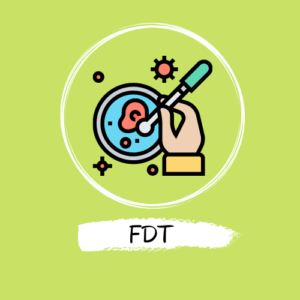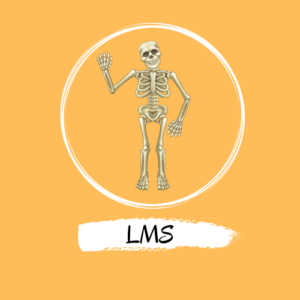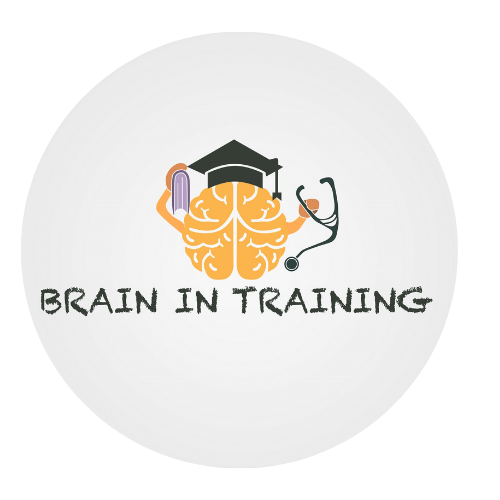Brain in Training is here to provide you with a few key points on getting through Semester 1.
Before we start here are some tips from one of our top tutors, Dr. Romario White👨🏾⚕️ to get you through the 1st Semester of Med School🩺:
🔹Understand that medicine is vast, and it’s highly unlikely that you’ll finish 100% of the syllabus. The earlier you accept this, the better for you. DON’T TRY TO KNOW EVERYTHING.
🔹Try to find your style of learning. Some persons can read for many hours, some learn by listening, some learn by visuals. Find what suits you. Especially now with having to learn at home, it is very important to know what works for you!
🔹Always learn your basics well. It might make great conversion to know a rare disease, but basics are more likely to come on your exam (and in practice) than rare stuff.
NB: In MBBS Final exams you will asked the simplest things and then it goes on to the harder topics to get Honours. If you can’t explain the pathophysiology of a disease then you aren’t going to reach to talking about treatment.
🔹Pace yourself. Rome wasn’t built in a day, and you won’t finish that textbook in 3🥴. Focus on chapter summaries in textbooks and Captions and Pictures. A lot of MCQ come not only from the details in the text but from the captions under pictures that no one reads. 🙃
🔹On the flip side, don’t wait until the last minute to study. (Although we know many of you will!) This is a marathon, not a sprint. Make sure to include days off in your study schedule!
🔹Don’t be ashamed to say “I don’t know”, and ask question. This is the time to make mistakes. Especially in anatomy tutorials! Specimens can be tricky!🦴
🔹I know it is hard with us being online but try to make friends and find/form a study group – persons who are serious about studying and can keep you accountable while you do the same for them. Be respectful.
🔹 Sleep😴 Yes, you may not be able to sleep out half the day as you could before. But please find the time to get some sleep. It’s best you know 50% of the syllabus while well-rested, than knowing 80% while immensely fatigued.
🔹 Last but in no way least! Check out BIT. We will be starting off with some free classes and it has helped me through medical school and even now revising as a doctor.
Good luck and I hope we meet sometime during your studies. Stay safe!😷
Enjoyed Dr. White’s Tips? Well here are some tips on each course put together by the BIT Team!

- Histology
- Books: DiFlores Altas of Histology
- Dr. Loubiton’s Lectures are amazing and everything is written on his slides.
- ProTip: He normally highlights key exam points in Red.
- The pictures in the powerpoint that are highlighted in red are also the most likely to come back on your exams!
- Do not miss the mock spotter. Questions normally come back word for word!
 2. Embryology
2. Embryology
-
- Book: Langman’s Embryology
- Pay keen attention as some lecturers tend to put only pictures on their slides, it will require you being awake!
- Make note of the pictures that are in the book because they tend to put pictures straight from the book straight back in the Spotter!
- Some pictures to know: Neural Tube Closure and the likely Abnormalities, Spermatogenesis, Oogenesis, Identifying different types of twin pregnancies (Monochorionic, monozygotic, diamniotic, etc), Different types of conjoined twins ( yes there are different types!) and more that Brain in Training is ready to show you in our classes!

3. Fundamental of Disease and Treatment
- Main help: Prayer🙏
- Books: Robbin’s Basic Pathology, Lippincott’s, Primer of Chemical Pathology, Katzung Phamarcology, Rang and Dale’s Pharmacology (the Rang and Dale’s Flash Cards are very good also)
- This is the most heavily weighted course of Semester 1 (6 CREDITS!). You do not want to have this following you into second year!
- It is 3 courses in 1!- Pathology, Microbiology and Pharmacology. Treat each section as if you were studying it as a different course. Pace yourself and if you find yourself falling behind, then study smarter by focusing on high-yield areas! Do not try to memorize the whole slide.

4. Musculoskeletal System
-
- Books: Last’s Anatomy, Netter’s Atlas of Anatomy
- Dr. Francis’ anatomy lectures have high-yield information to pay attention to that often comes in MCQ and spotters. So make sure to stay awake!
- Unfortunately with online classes you will not have the advantage of being up close and personal with a specimen. It is super important to listen clearly to what is said in labs.
- You may not be able to make out a structure highlighted but word association in the spotter is the key to getting some marks for the station if you can not identify the structure indicated.
- The Netter’s Atlas of Anatomy has muscle tables in there.
- Pro Tip: List every muscle you come into contact with and make your own table with the headings Muscle, Origin, Insertions, Action, Blood Supply and Innervation. Check out our example below!
- Track the course of major vessels and nerves. In your exams they may not be straight forward to ask you to just identify a vessel or nerve. You may be asked what it originated from or what other structure it gives rise to, then what that branch supplies.
- Study your dermatomes! Questions on dermatomes can be placed both on MCQ and in Spotter at almost every station!
![]()

- Molecular Medicine
- Books: Lippincott’s Biochemistry by Richard Harvey
- Tip: Pay keen attention in lectures! When it comes to the different enzymes involved in cycles and processes, they often put the main steps to know in RED (Thank God for us!)
- A lot of DNA and genetics comes on the exam.
- Know the mutation that causes Sickle Cell.
- Different patterns of inheritance and examples of disease with this type of inheritance.
- PCR, Dolly the Sheep, the basis of different experiments- Fred Griffith, Alfred Hershey, etc.
- How a sequence is written when transcribed in tMRNA
- Okazaki Fragments are always asked
- Hardy Weinberg Law
- Other than that Brain in Training is here to get you through this heavily failed course this semester.
Click the link below to access a drive with helpful lectures and books. This drive has no affiliation with Brain in Training, however, we felt it best to share for use by all students.

